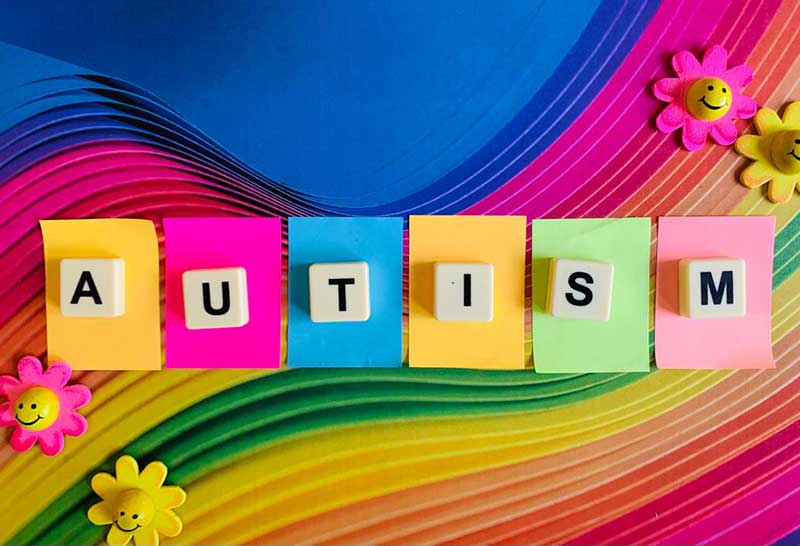
16 May What is autism?
Autism: what is it? In my mind there are two answers to this question and the reason for this is simple. On the one hand there is the clinical answer.
Clinically autism spectrum disorder (ASD) or autism is a broad term that describes a group of neurodevelopmental conditions. Conditions that are characterized by differences in communication and social interaction.
In the DSM-5 symptoms of Autism or autism spectrum disorder (ASD) are listed in two categories:
- Problems with communication and social interaction
- Problems with restricted or repetitive patterns or behavior
To receive a diagnosis of autism the child or person would need to experience symptoms in both categories.
But what is autism? What should a parent be looking out for developmentally? Or rather what does an autistic child struggle with?
To truly understand autism, we need to look at the symptoms in more detail.
Communication & Social problems – which would include:
- The child’s ability to read or to learn how to read, reading out loud etc.
- The child’s ability to write, learning to write, pencil grip, general formation of letter, spacing etc.
- The child’s ability to talk can also be affected. Autism does not only mean “mute” it means:
- How the child responds to verbal instruction is different or affected.
- How the child has conversations, answer questions, asked questions is affected?
- How much the child speaks. Some autistic children speak minimally. Using words only and not real sentences.
- The asking of “w” questions.
- The child’s ability to understand new words or phrases
- Speech, physically using language as a form of communication.
- Language can appear almost robotic at times.
- Speech may be whiney or singsong like.
- Some children with autism may have speech regression. Meaning that the child learns language as a baby but then loses words around the age of 2 years.
- The clarity of words, phrases or sentences may be affected and children on the spectrum may learn new words, but these words are very hard to understand.
- Speech can me scripted meaning that the child uses phrases or words continuously and even appropriately, but they are words or phrases that the child has heard days or even weeks earlier.
- Echoing languages (called Echolalia) is another communication problem in autism. The child can produce speech but only when they repeat words or sentence being spoken to them. They do not use language any other way. They many not even answer questions.
- Children diagnosed as being autistic often use gestures or pulling rather than speech to communicate their needs and wants.
- Understanding emotions is very hard for a child on the spectrum. They struggle to identify different emotions and struggle to identify the emotions or feeling of others. This can lead to conflict and a difficulty making new friends.
- Young children with autistic struggle to participate in small and large group activities so they may cry to leave the classroom or ask to rather be outside.
- Socially shared attention is problematic for many children on the spectrum.
- The way an autistic child plays can be very different to normal developing children. They tend to rather play on their own and often they will have difficulties sharing their toys or waiting their turns.
- Children on the spectrum may also have trouble responding to social engagement in an appropriate way. They may struggle to understand the “rules of the game” and they may not know how to engage comfortable with friends.
Let us now look at the 2nd grouping listed on the DSM which is – Restrictive or repetitive patterns or behavior:
- Self-regulations can be difficult for a young child on the autism spectrum. They may cry for extended amounts of time.
- Obsessive behavior with televisions, remotes, rewinding or replying to parts of a movie
- Obsessive behavior with a character, type of toy or random item that they have lying around the house.
- A child my cry for no reason, or laugh out loud uncontrollable or even become angry for no visible reason
- Texture, sights, sounds and light may affect the child and it may be very challenging for a young child on the spectrum to brush teeth, wash hair, have water on their face, wear shoes, walk barefoot or even try new foods.
- Young children on the spectrum can be very resistant to change! Even the slightest change in routine or change in environment can set an autistic child off and cause an emotional outburst.
- Lastly changing activities, moving between spaces, stopping one-thing and starting a new one are all aspects that a child with autism struggle with.
So, my advice to parents is to learn what the symptoms behind the symptoms are so that you can talk to your child’s pediatrician or developmental specialist about your concerns. The earlier you get the diagnosis the earlier you can start autism specific intervention. With a good autism early intervention program in place the prognosis for your child long term improves exponentially.

